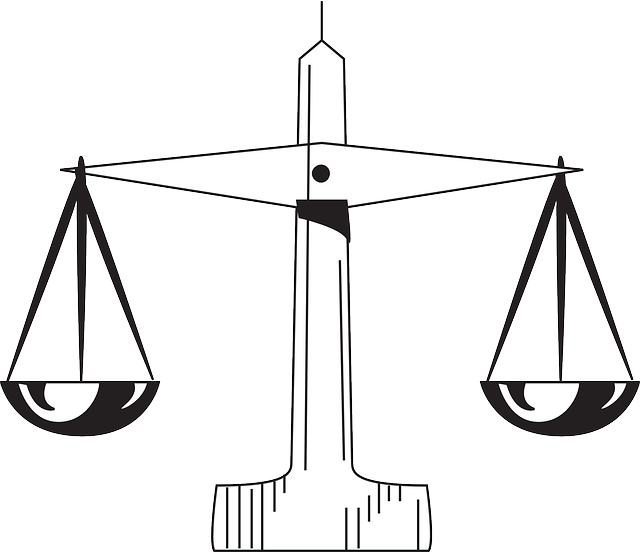Oregon attorneys play a pivotal role in navigating complex contempt of court cases, offering crucial insights into the state's legal framework. They guide clients through the intricacies of proceedings, ensuring fair treatment and strategic advice tailored to Oregon's unique laws and precedents. Understanding mitigating factors like good faith efforts is key; these professionals analyze evidence, present arguments, and leverage precedents to defend against accusations. Case studies provide Oregon attorney insights into key principles and interpretations shaping legal strategies. As the legal landscape evolves, attorneys must adapt guidelines to address trends in alternative dispute resolution, remote communication, data privacy, and systemic issues like economic inequality.
“Explore the intricate world of contempt law in Oregon through the lens of expert legal opinions. This comprehensive guide delves into the state’s unique framework surrounding contempt of court, shedding light on crucial roles played by Oregon attorneys. From understanding key considerations for proof to defense strategies, we offer valuable insights from professionals who navigate these complex cases. Join us as we analyze significant contempt outcomes and explore future trends, providing a wealth of knowledge for both legal practitioners and enthusiasts.”
- Understanding Contempt of Court in Oregon: A Legal Framework
- The Role of Oregon Attorneys in Contempt Cases
- Key Considerations for Proving Contempt in Oregon Courts
- Defending Against Contempt Charges: Strategies from Oregon Lawyers
- Case Studies: Notable Contempt Cases and Their Outcomes in Oregon
- Future Trends and Challenges in Oregon's Contempt Law
Understanding Contempt of Court in Oregon: A Legal Framework

In Oregon, contempt of court is a serious matter that involves willful failure to comply with a court order or rule. The state’s legal framework provides clear guidelines for addressing such cases, with insights from Oregon attorneys and legal experts playing a crucial role in shaping professional perspectives on contempt. Understanding the nuances of contempt is essential for both parties involved—from Oregon lawyers offering analysis on behalf of clients to individuals facing accusations—as it directly impacts the enforcement of judicial decisions.
Legal experts emphasize that the court’s power to hold someone in contempt is not a penalty but rather an instrument to ensure respect for its orders and proceedings. This involves examining the specific circumstances of each case, with professional insights suggesting that good faith efforts to comply or lack of knowledge about an order can be mitigating factors. Oregon attorneys’ analysis often delves into these details, offering strategic advice tailored to the legal landscape and ensuring fair treatment throughout the process.
The Role of Oregon Attorneys in Contempt Cases

Oregon attorneys play a pivotal role in navigating contempt cases within the state’s legal landscape. Their expertise and insights are invaluable in understanding the nuanced aspects of this legal domain. These professionals offer crucial analysis and guidance, ensuring that all parties involved comprehend their rights and responsibilities. With their in-depth knowledge of local laws and court procedures, Oregon attorneys help clients avoid potential pitfalls and navigate the complexities of contempt proceedings effectively.
The legal perspectives from Oregon lawyers contribute significantly to shaping the outcome of contempt cases. Their strategic advice enables clients to present compelling arguments and defend against accusations. Furthermore, these legal experts can provide valuable Oregon attorney insights contempt, offering a comprehensive view of the court’s expectations and the consequences of non-compliance. This professional analysis equips individuals and organizations with the necessary tools to resolve such matters efficiently and in accordance with the law.
Key Considerations for Proving Contempt in Oregon Courts

When navigating Oregon’s legal landscape regarding contempt cases, several key considerations come into play for both plaintiffs and defendants. Oregon attorneys specializing in civil litigation and family law offer valuable insights into the state’s unique approach to contempt proceedings. These experts emphasize that proving contempt in Oregon courts requires a thorough understanding of the specific circumstances and legal perspectives outlined by the state’s laws and precedents.
The analysis begins with examining whether there exists a valid court order or judgment, clearly outlining the obligations and expectations for one or both parties. The Oregon legal expert on contempt emphasizes that any alleged contemner must have had knowledge of this order and the resulting consequences. Furthermore, the attorney insights suggest that demonstrating willful disregard or intentional violation of the court’s command is crucial to establishing contempt. This involves presenting substantial evidence showing the accused party’s failure to comply with the court’s mandate, often requiring detailed documentation and witness testimonies.
Defending Against Contempt Charges: Strategies from Oregon Lawyers

When facing contempt charges in Oregon, a robust defense strategy is paramount. Oregon attorneys specializing in this area leverage their extensive knowledge and legal expertise to challenge allegations. They often start by scrutinizing the underlying court order, ensuring its clarity and specific mandates. If ambiguity exists, they may argue that there was a good-faith effort to comply with the order’s intent, not its literal words.
These legal professionals also employ tactical maneuvers such as presenting evidence of efforts made to fulfill the order, offering explanations for any non-compliance, and highlighting instances where external factors impeded adherence. They draw upon Oregon’s legal perspectives and precedents, citing relevant case law to bolster their arguments. Ultimately, their goal is to demonstrate that the alleged contemnor acted with due diligence and, if not innocent, had a reasonable belief in their actions’ legality.
Case Studies: Notable Contempt Cases and Their Outcomes in Oregon

In Oregon, case studies of notable contempt cases offer valuable Oregon attorney insights into how the law is interpreted and enforced. These cases provide a window into the legal perspectives on contempt in the state, highlighting key principles and precedents that guide judges’ decisions. For instance, the 2018 case State ex rel. O’Malley v. Johnson established important guidelines for civil contempt, emphasizing the need for clear and specific orders and the burden of proof required to demonstrate willful violation.
Another noteworthy example is Doe v. Oregon Department of Human Services (2020), which involved a dispute over access to medical records. The court’s ruling underscored the importance of respecting privacy rights while balancing the need for transparency in family law matters. These cases not only showcase the complex nature of contempt proceedings but also demonstrate the Oregon lawyer opinions and professional insights that shape legal strategies and outcomes in such sensitive matters.
Future Trends and Challenges in Oregon's Contempt Law

Oregon’s contempt laws, while robust and well-established, face evolving challenges in an increasingly complex legal landscape. Future trends suggest a growing emphasis on alternative dispute resolution methods, such as mediation and restorative justice practices, which could potentially alter the traditional approach to contempt cases. With the rise of remote communication and digital evidence, there is also a need for updated guidelines on evidentiary admissibility and procedural adjustments to accommodate these new norms.
Legal professionals predict that Oregon courts will increasingly consider the impact of systemic issues like economic inequality and access to justice on contempt proceedings. This shift may lead to more nuanced interpretations of “willful” conduct, taking into account societal barriers that hinder compliance with court orders. Moreover, the ongoing development of technology raises ethical considerations regarding surveillance and data privacy, which could influence how contempt is proven and punished in Oregon.






